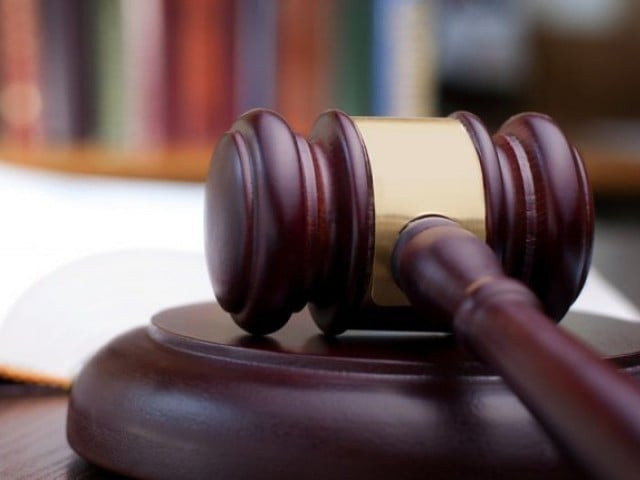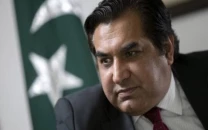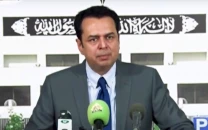SJC deliberates over its jurisdiction to proceed against NAB chairman
Asks AGP to take instruction from govt regarding council’s power to hear complaint against NAB chief

The Supreme Judicial Council (SJC) has asked Attorney General for Pakistan (AGP) Khalid Javed Khan to take instruction from the federal government on the council's jurisdiction to proceed against the National Accountability Bureau (NAB) chairman over misconduct complaints.
The five-member SJC – presided over by Chief Justice of Pakistan Gulzar Ahmed – on Monday took up the complaints that accused the NAB chairman of misconduct. One of the SJC members – Sindh High Court Chief Justice Ahmed Sheikh – attended the council meeting through video link.
During the meeting, the members raised several questions about the council's jurisdiction to hear the complaints. Former AGP Anwar Mansoor Khan in a written reply told the SJC that law does not mention if the SJC can be a forum to hear complaints against NAB chairman.
Read: NAB moves SC against IHC decision
Read more: SJC to decide about jurisdiction to proceed against NAB chief
The council asked the incumbent AGP to take instruction from the government regarding the SJC jurisdiction in this matter. On the AGP's request, the council postponed the meeting until after summer vacations. Written order of the SJC meeting will be issued later.
Barrister Zafarullah, Saeed Zafar and Mohsin Raza Ranjha had filed these complaints in 2019 and the SJC had placed them for hearing last year.
Legal experts point to the ambiguity in the law regarding dismissal of the top graft buster’s boss.
According to Section 6 of the National Accountability Ordinance (NAO), 1999 the chairman shall not be removed except on the grounds of removal of a Supreme Court judge.
Read more: Ghani says NAB chief under pressure
Legal experts argue that in view of the above provision, the chairman shall be removed for the same reasons as a judge of the apex court as mentioned in the SC Judges’ Misconduct 2009.
However, there is no separate mechanism provided for the removal of NAB chairman in the law. The NAO, 1999 doesn’t even mention if the SJC could hear complaints against the NAB chief.
In Asfand Yar Wali case 2001/02, the top court had directed the federal government to insert conditions regarding the removal of the NAB chairman, noting that the government had “left out” the procedure for sacking the graft watchdog’s chief.
Interestingly, the Constitution is also silent about the removal of the NAB chairman. Article 209 talks about the removal of judges and the auditor general of Pakistan through the SJC.
Another article allows for the removal of the Election Commission of Pakistan (ECP) members by the SJC. However, there is again no mention of the removal of NAB chairman through the council.
In the Panamagate case judgment, Justice Asif Saeed Khosa had also noted that the direction for initiating proceedings against NAB chairman under Article 209 of the Constitution may involve some jurisdictional issues.
A section of the lawyers believes that if the law is silent, the appointing authority – the President of Pakistan – may remove the NAB chairman under General Clauses Act, 1897.
The SJC had earlier raised the same issue of jurisdiction, when it took up a complaint of misconduct against then former NAB chairman Qamar Zaman. That complaint was filed by incumbent information minister Fawad Chaudhry in view of Supreme Court observations in the Panamagate judgment.
A senior official in the law ministry said if the SJC held that it has no jurisdiction to proceed on the complaint of misconduct against the graft watchdog chief then the federal government may carry out new legislation to end ambiguity.
The tenure of the incumbent NAB chief is ending in October this year. However, there are reports that the government is considering different options to give him an extension through legislation.
Some political analysts said the opposition parties will strongly resist any governmental move to extend the tenure of incumbent NAB chairman. During Javed Iqbal’s tenure, many politicians – mainly belonging to opposition parties – were put behind bars during the investigation stage.



















COMMENTS
Comments are moderated and generally will be posted if they are on-topic and not abusive.
For more information, please see our Comments FAQ